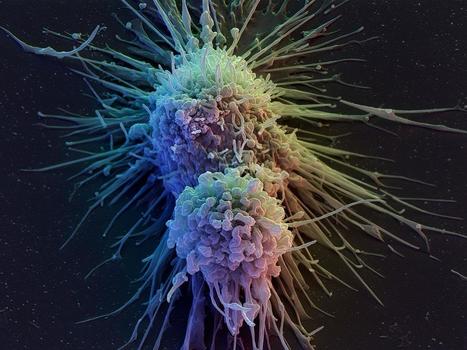Research and publish the best content.
Get Started for FREE
Sign up with Facebook Sign up with X
I don't have a Facebook or a X account
Already have an account: Login
 Your new post is loading... Your new post is loading...
 Your new post is loading... Your new post is loading...
|
|












To make CAR-T therapy more accessible, it is highly desirable to develop an allogeneic adoptive transfer strategy, in which universal CAR-T cells derived from T cells from healthy donors can be applied to treat multiple patients. For this strategy to work, the αβ T-cell receptor (TCR) on allogeneic CAR-T cells needs to be eliminated to avoid graft-versus-host-disease (GVHD), and human leukocyte antigens class I (HLA-Is) on CAR-T cells need to be removed to minimize their immunogenicity. Previous studies have shown that mutation in TCRα subunit constant (TRAC) leads to loss of αβ TCR on T-cell surface2, and beta-2 microglobulin (B2M) is essential for cell-surface expression of HLA-I heterodimers3. Thus, the scientists attempted to target TRAC and B2M genes in CAR-T cells. Considering blocking programmed death-1 (PD-1) signaling can effectively treat cancers via reversing immunosuppression, we also targeted PD-1 in CAR-T cells to render them nonresponsive to PD-1 signaling.